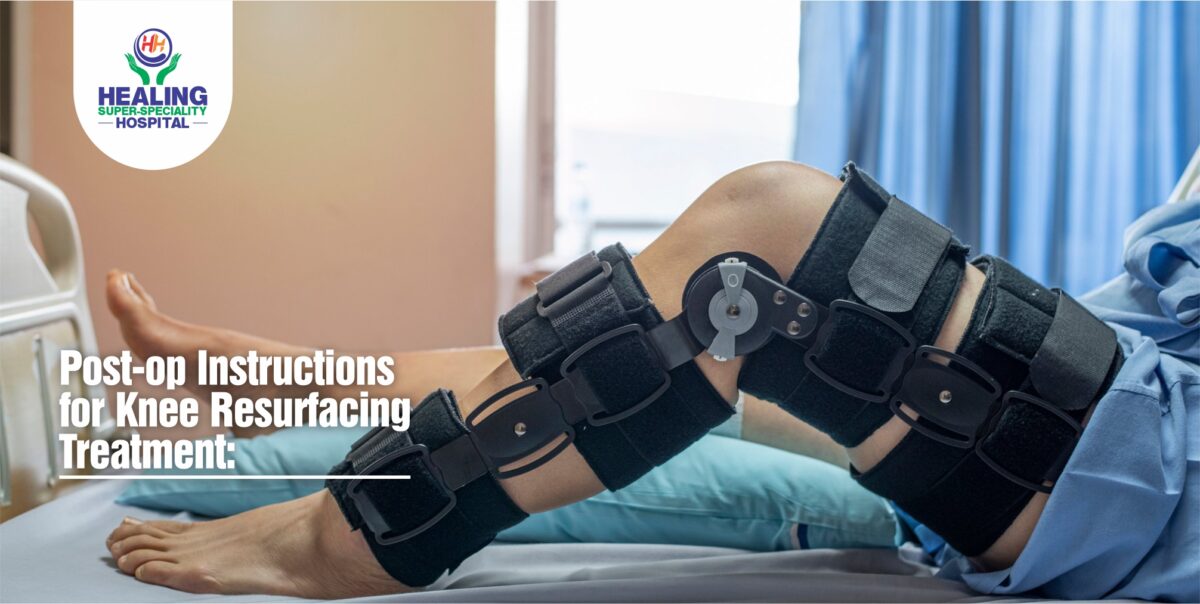Hello and Congratulations for a successful surgery .This is for all the patients who have just undergone the knee resurfacing procedure. This is to educate you about certain possible conditions that might happen but won’t necessarily happen so that you and your relatives do not panic or lose their confidence in your surgery. Losing self confidence or losing confidence in your surgery will only delay your recovery.
Unlike traditional knee surgery, in knee resurfacing we try to make you mobile & independent as fast as possible. We want you to stand and walk after just 3 hours:
- We want you to leave your walking aids like walker or stick faster
- We want you to start climbing stairs faster
- We want you to be back to your active life faster.
To achieve this, our physiotherapy team will work with you daily, to train your muscles, to train your mind, to gain confidence on your new knees.
It’s like a child learning to walk. It’s a gradual process and our physiotherapy team will encourage you to push your limits so that you learn to walk again on your new knees.
Remember, for the past many months because of your knee arthritis, you had not done knee exercise, you had not gone for walks, you had not climbed up stairs, just out of the fear of knee pain and for the past few months because of disuse- your muscles & bones of thighs, legs and back have gone weak and thin.
After knee resurfacing, you will be using these same weak and thin muscles and ligaments and pushing them to their limits so that you can achieve better results and that too faster. Nobody wants to take a full year to recover, we want faster recovery. And this takes effort and will power.
Most of our patients recover at a very fast pace. But certain patients can experience a few small hiccups on their road to recovery depending upon their age, weight, other diseases they might be having like diabetes, hypertension, heart conditions etc. These hiccups should not deter you in your path to recovery.
- Swelling around foot & ankle.
This is completely normal and should not be a reason to panic. Because of the surgery and bed rest, fluid tends to accumulate around the ankle and feet due to gravity. Talk to your surgeon and try these simple remedies:
- Use compression stockings
- Elevate your legs over a pillow
- Do ankle pump & calf exercises
Usually this swelling slowly starts to subside after a few days. Continue your medications & exercises.
- Cramps in your thighs & calf
In certain patients because of the effect of exercises our physiotherapy team does, the weak and discussed muscles of your thigh & calf may appear swollen and develop cramps. These muscles will eventually get trained and become stronger. This usually occurs in patients who have had a long history of knee arthritis due to which they have never done any form of knee exercises. There is no need to panic if you develop these cramps. It is a passing phase and with continued exercises and physio these cramps disappear in & few days.
Easy remedies are:
- Drink lots of water
- Have a balanced diet with salads & fruits
- Continue exercises
- Use ice packs
- Gentle massage over the affected areas.
- Blood spots on your knee dressing
The sole purpose of a knee dressing is to absorb any fluid or blood which leaks through the wound so ,do not be alarmed by it. Usually it is advised to get the dressing changed every 3rd day but in case there is a blood spot, simply get it changed from our hospital and apply compression bandage over it . These blood spots usually stop appearing after a few days. Simple remedies are:
- apply compression crepe bandage over the dressing
- get dressing changed
- Reduce the frequency of physiotherapy exercises for 1 or 2 days.
- loss of appetite
In order to reduce chances of infection and to reduce the swelling, you would be prescribed an antibiotic and an anti inflammatory medicine. These medicines can disturb the normal digestive process and cause loss of appetite. It is essential that you do not skip your medications but simple things that can help you improve the digestion are:
- Eat soft diet
- move around more often
- high fibre diet
- be more active
- Stay hydrated
- Feeling of warmth around your knees or bruises around your knees.
This is usually because of increased blood supply around your knees immediately after your surgery and is completely normal. Simple remedies are:
- apply ice packs
- do knee movement exercises
These are just a few possible conditions that certain patients might encounter. If there are any other conditions or situations that you might be experiencing, contact me or my team and we will do our best to answer your queries and try to resolve them and educate you about them as well.
Please go through the instructions which are being handed over to you with your discharge summaries and ask our team to explain to you in detail about each point.
Thank you & we wish you a speedy recovery.
Your Surgeon,
Dr. Tarandeep Singh Gill
(Sr. Consultant –Orthopaedician & Joint Replacement Surgeon)

























